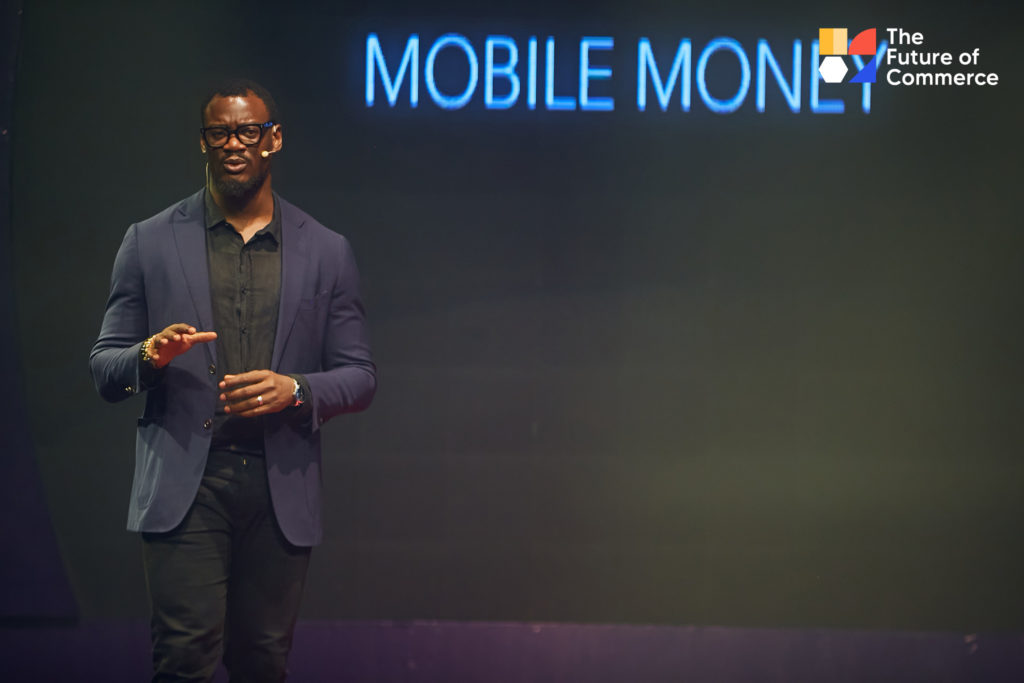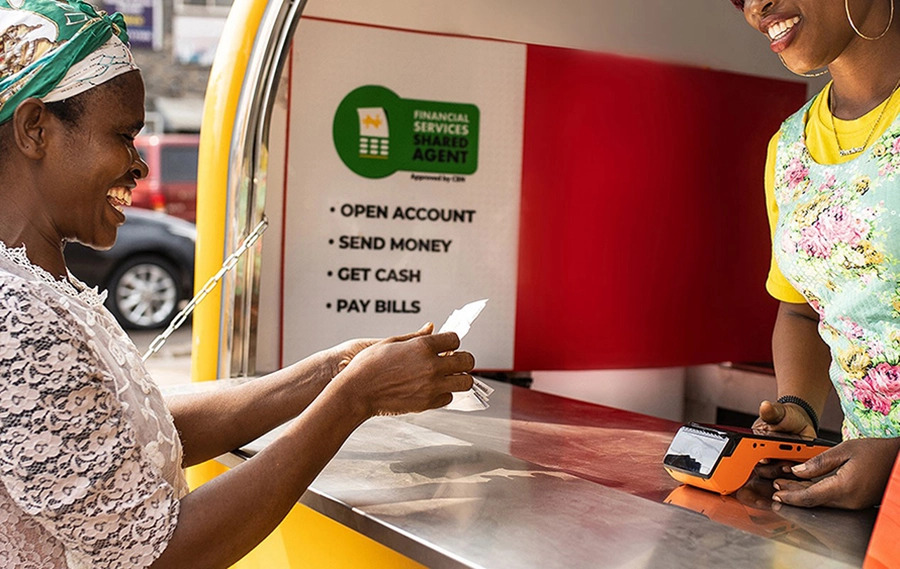At TechCabal’s Future of Commerce event, held on 23rd September, a panel session was put together to discuss the impact of mobile money on payments and commerce in Africa.
There, Damilare Dosunmu, staff writer with TechCabal and panel host, asked Safaricom’s acting chief consumer business officer, Fawzia Ali-Kimanthi, what could happen to the East African mobile money market if Wave, which has disrupted the mobile money space in francophone Africa with its cheap services, were to compete with Safaricom’s M-PESA—which can be quite expensive.
Ali-Kimanthi laughed. The question was tricky. M-PESA dominates the Kenyan mobile money market, powering 98% of mobile money transactions in a pro-cashless population of over 53 million people. But what happens when they face a competitor that is not local and is a cheaper alternative?
Ali-Kimanthi answered the question with a promise for Kenyans: M-PESA is working on reducing the cost of mobile money credit services. Speaking on a possible Wave entry, she said M-PESA is willing to face big competitors, as that would help them innovate and improve their products.

The influence of M-PESA, Wave, and relatively newer players like MTN in Africa’s mobile money market has spurred the growth of mobile money in Africa to unprecedented heights. Presently, transactions in sub-Saharan Africa account for nearly 70% of the $1 trillion transacted through mobile money globally. The region witnessed a 40% YoY growth to land its $697.7 billion in processed payments, far ahead of East Asia and South Asia ($156.3 billion), the other regions with leading mobile money penetration.
While this expansion is laudable, the benefits of mobile money expansion in Africa go beyond payments. In Africa, mobile money is doing what traditional banks have been unable to do in their decades of existence—getting people, despite how uneducated or low-paid they may be, to embrace the digital life and subscribe to digital financial services.
This shift in lifestyle continues to impact the continent in so many ways, one of which is in the efficiency of small businesses. The reliance on digitised mobile payments has enabled swifter transactions between small businesses and their customers, creating a pro-digital business environment in local African settings.
To corroborate this, a report by GSMA, which surveyed the global mobile money penetration, read, “Cash-in, cash-out and person-to-person (P2P) payments still account for the bulk of value, but more people in LMICs [low and middle-income countries] are living increasingly digital lives thanks to mobile money.”
Does Nigeria hold the key to Africa’s mobile money revolution?
The earlier referenced GSMA report also projects an increased growth in mobile money penetration in countries where mobile money operations are still nascent, like Nigeria (where telcos are just beginning to make a foray into mobile money services) and Ethiopia (where M-Pesa recently got licensed to operate).
Nika Naghavi, MFS Africa’s executive director, mobile network operators, who was on the FOC panel too, expressed her agreement with GSMA on a possible explosion of mobile money operations in Nigeria. According to her, the entrance of telcos like MTN and Airtel into the Nigerian mobile money market is the next big trend for mobile money on the African continent.
“Adoption of mobile money in Nigeria through MTN and Airtel will change the landscape and introduce innovative services and partnerships that will differ from what we’ve seen so far,” she said.
“Nigeria is Africa’s largest unbanked population, and while its payment industry has flourished, there’s hardly any lead player banking the unbanked in a sustainable manner. This is where mobile money comes in,“ she added.
Naghavi’s argument stressed the fact that 60% of the unbanked Nigerian population use mobile phones and are already connected to big telcos. Also, MTN and Airtel have been in the West African country long enough to understand their users’ behaviours significantly. Thus, their networks, data, experience, and extensive national reach present them as competent drivers of a mobile money revolution in the country and on the continent.
Ali-Kimanthi, who works with M-PESA, a telco-led mobile money player, was optimistic about the prospect of telcos pushing mobile money in Nigeria.
“With what we saw in Kenya, I can predict an explosion of mobile money operations in Nigeria, and it will power industries,” she said.
Amidst the hype around Nigeria’s mobile money market, we must remind ourselves of some reasons why products like M-PESA took off on a national scale in Kenya. Besides the telco push, one key factor is that mobile money operations in the region were innovated to include credit facilities. That’s not the case in Nigeria presently, but there’s no reason why it can’t be so in the future.
M-PESA’s model proves that financial products, like credit and even insurance, can be built into mobile money operations. This is what it truly means to bank the unbanked, to create an ecosystem that extends a suite of financial services to the financially excluded rather than merely providing them with digital means to transfer cash. This may, in fact, be the key to the mobile money revolution that we’re keen to witness in Africa.
In addition, Nigeria’s mobile money space is flooded with many private fintechs, such as Paga and Moniepoint, all of which compete with numerous traditional banks that have stormed the market within the past decade. If telcos will change the playing field as Naghavi presaged, they will have to herald the paradigm shift in mobile money operations by doing better than existing competitors and offering Nigerians a true taste of financial inclusivity.
Africa may be the king of mobile money, but there are still wars to win

The reality that over 800 million Africans are still not connected to the internet presents a challenge for mobile money operators across the continent. It becomes clear that innovation in the sector must include Africans without smartphone access. USSD services offer a great option here, as they circumvent the existing internet problem for Africans in rural regions.
Something else operators must pay attention to is how, instead of cash, digital payments can be crowned as king on Africa’s streets. In Kenya, arguably Africa’s biggest mobile money market, 90% of transactions are still done in cash, revealing an untapped market on the continent that could be 10X the numbers Africa is recording in mobile money transactions.
Added to these issues are the stifling regulations by African governments on mobile money services on the continent. Across Africa, customers and mobile money providers are having to bear the brunt of expensive compliance with rent-seeking government policies. In Ghana, it was a 1.75% tax on digital transactions called “e-levy”. The Cameroonian government put theirs at 0.2% for money transfers and withdrawals from mobile money solutions. Both levies have been criticised by mobile money users, but they’re still in place, and mobile money services are suffering as a result.
Esigie Aguele, co-founder and CEO of Qore ID, an identification verification company, contributed to the panel conversation at TechCabal’s FOC, highlighting the need for standard verification processes and strategic partnerships in Africa’s race to revolutionise mobile money.
“Mobile money will scale financial inclusion and open up the market for many African businesses, but there’s a strong need for operators to be sure that their customers are who they claim to be, and that’s where companies like ours service the ecosystem,“ he said.
“Strategic partnerships are also very important to the future of mobile money services on the continent. Banks, fintechs, and even telcos can find mutual ground to partner with themselves and develop innovative products for African users,” Aguele added.
Commerce in Africa is taking shape. While products like BNPL and drone logistics may pose as the next frontiers, the truth remains that mobile money penetration, adoption, and innovation hold the key to the radical transformation of commerce on the continent.
When mobile money gets to some innovation peaks, we will see an Africa where a rural farmer can, from the comfort of her bed or barn, access mobile payments, digital transfers, insurance, credit, and even investment opportunities with the use of her phone, and with or without internet access. This is possible in Africa, and our position as global leaders in mobile money transactions proves that we can show the world what can happen when mobile money services are met with true disruption.




















